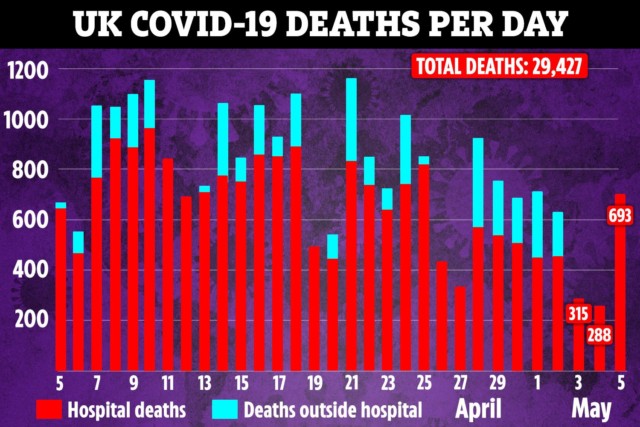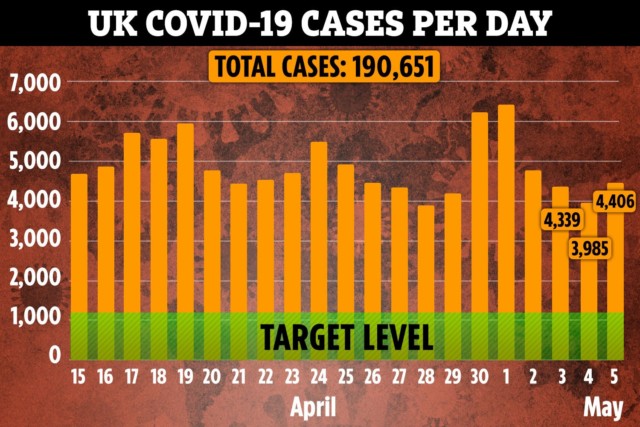In a joint statement, GCHQ and its US counterpart said that hackers have been “password spraying” in a bid to access computers in hospitals, pharmaceutical companies and research facilities.
The First Secretary of State highlighted the news at tonight’s press conference.
He told the nation: “There will always be some who seek to explicit a crisis for their own criminal and hostile ends.
“We know cyber criminals are targeting individuals and businesses and other organisations by deploying Covid scams and phishing emails.”
And sophisticated groups of hackers are trying to break into computer systems too, he added.
They are “actively targeting national and international organisations”.
Today the UK National Security Centre and US infrastructure agency published a joint warning on these groups, along with advice for firms on how to avoid malicious hacks.
They are targeting healthcare bodies, pharmaceutical organisations, local government, and research groups, he revealed.
They were looking to steal personal data and were “often linked with other state actors”, Mr Raab added.
“We expect this kind of predatory criminal behaviour to continue.”
The news was first revealed in the Mail on Sunday last weekend – with security sources pointing the figure at Russia and Iran.
Cyber attacks from hostile states have targeted several institutions in an attempt to steal secrets in an attempt to get information on coronavirus vaccine research and testing.
Spy bosses at the National Cyber Security Centre branded the attacks “utterly reprehensible”.
They said they were working “round the clock’” to battle the online menace.
Hackers tried to access emails and other services, the paper claimed.
A Whitehall source said: “It looks like they’re trying to steal or borrow information about our response to coronavirus.”
However, no attack is said to have been successful yet.


Tobias Ellwood, chairman of the Defence Committee, said Britain should “not hesitate in retaliating appropriately” if such attacks were linked back to rogue states.
He added: “The global distraction of Covid-19 provides the perfect fog of war to conduct cyber attacks. Especially when the prize of a vaccine is so huge.”
Britain is one of the leading countries in the race for a vaccine, with both Oxford and Imperial having begun vaccine trials in humans.
The research – which often takes years – has been sped up and given millions of pounds worth of funding from central Government.
Scientists are confident they will be able to tell in just a few months if theirs will work.
The WannaCry ransomware attack on the NHS caused widespread disruption back in 2017, and experts have warned the health service is particularly vulnerable to another onslaught at the moment.
Meanwhile, last month cyber experts warned that criminals were exploiting the crisis with a wave of fresh attacks.









